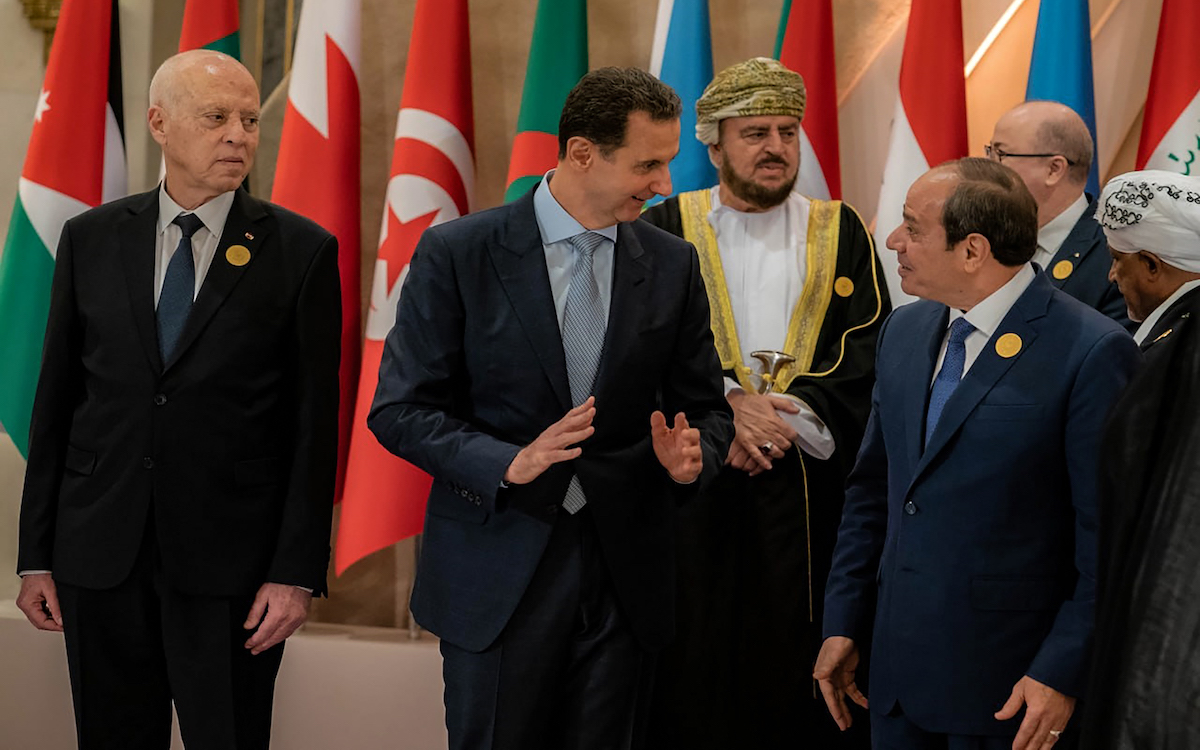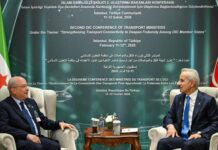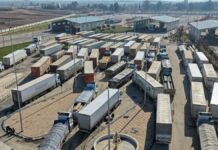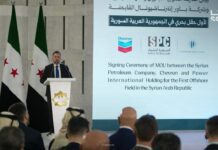
Officials from Turkey and Russia met on Saturday in Ankara to discuss Syria, marking the latest effort to normalize relations between Turkey and the Assad regime, an initiative largely driven by Russian diplomacy. Despite numerous attempts at normalization in recent years, these efforts have consistently failed to yield significant benefits for the states involved, the Syrian people, or the inhabitants of regime-controlled areas.
The recent meeting in Ankara, announced via the Turkish Ministry of Foreign Affairs on the “X” platform, involved Turkish Deputy Foreign Minister Nuh Yilmaz and Alexander Lavrentiev, Putin’s special envoy to Syria. While the details of their discussions remain undisclosed, this dialogue is part of ongoing Russian attempts to mediate between Turkey and the Assad regime. Turkish Foreign Minister Hakan Fidan emphasized that current contacts are merely a declaration of intent, with no clear timeline for a high-level meeting between Turkish President Recep Tayyip Erdogan and Bashar al-Assad.
Past dialogues, including those sponsored by Russia and Iran, have repeatedly stumbled over preconditions set by the Assad regime. The most significant of these is the demand for the withdrawal of Turkish forces from Syrian territory. In late 2022, a series of meetings at various ministerial levels also failed to produce a breakthrough, primarily due to these rigid preconditions.
Turkey has expressed a willingness to negotiate on specific issues such as refugee cooperation and combating Kurdish militant groups, but the Assad regime’s inflexibility has halted progress. Russia has acknowledged the difficulties in these negotiations, admitting that rapid rapprochement is unlikely.
The pattern of failed normalization is not confined to Turkish-Syrian relations. In late May, Saudi Arabia appointed its first ambassador to Syria in over a decade, following similar moves by the UAE, Jordan, and Bahrain. The devastating earthquake in February 2023 spurred further attempts, culminating in the Arab League’s restoration of Syria’s membership in May 2023. However, these steps have not yielded the desired outcomes.
Key objectives of the Arab normalization, including safe refugee return, curbing Captagon production, and reducing Iranian influence, remain unmet. Refugees returning from Lebanon face arrest and torture, and Captagon smuggling continues unabated, often with regime complicity. Despite initial optimism, the Arab Liaison Committee has suspended its meetings with the Assad regime, and no new dates have been set for future discussions.
Normalization has so far granted the Assad regime international recognition without demanding significant reforms in return. This has not improved the plight of the Syrian people or advanced regional stability. Efforts to curb drug trafficking and facilitate refugee returns have failed, and Iranian influence in Syria persists. Analysts like Charles Lister have observed that normalizing Assad has only exacerbated Syria’s myriad problems rather than alleviating them.
Regionally, normalization has normalized as routine politics, with countries like Saudi Arabia defying US sanctions to aid Syria. Bilateral relations have taken precedence over collective Arab strategies, leading to visits and agreements that prioritize national interests over regional stability.
For advocates of isolating the Assad regime, normalization has proven counterproductive, rewarding a regime responsible for widespread atrocities and undermining accountability efforts. Human rights groups like the Syrian Network for Human Rights (SNHR), warned normalization of the Assad regime could have devastating effects on the Syrian people, such as encouraging the killing of prisoners held by the regime.
This strategy has also emboldened right-wing European and Western leaders to push for Syrian refugee returns, ignoring the dire conditions in Syria. Like the recent calls by some EU member states to “reexamine” the union’s diplomatic stance on the Assad regime or a German court’s ruling that Syria is “safe” for refugees which starkly contrasts with on-ground realities. These efforts are likely to result in more refugees, as an emboldened Assad and his allies increase attacks and violations whenever there are pushes towards normalization, as witnessed this past July. Continued normalization of the Assad regime serves neither regional nor international interests. It fails to address key issues such as refugee safety, drug trafficking, and Iranian influence.








